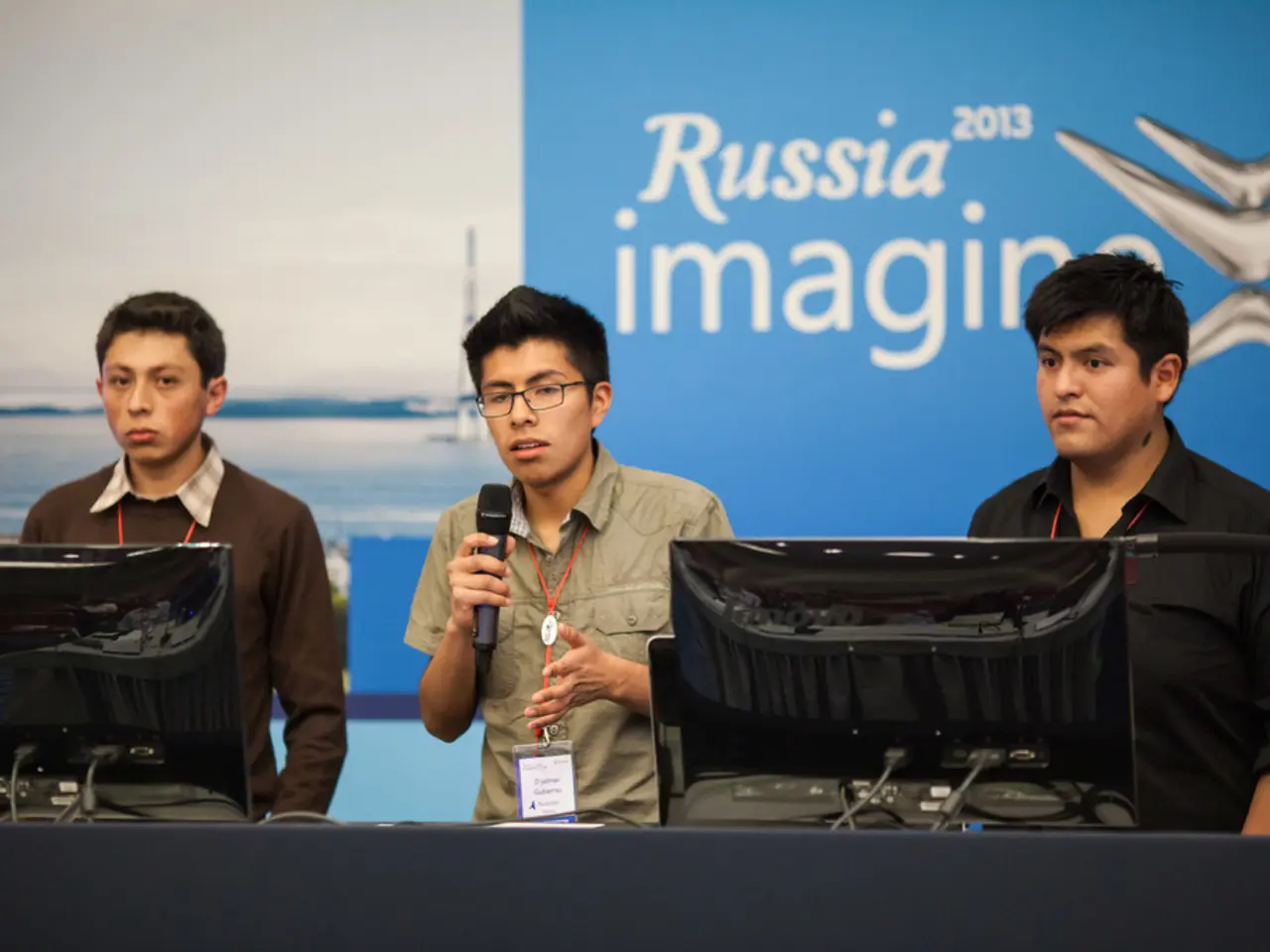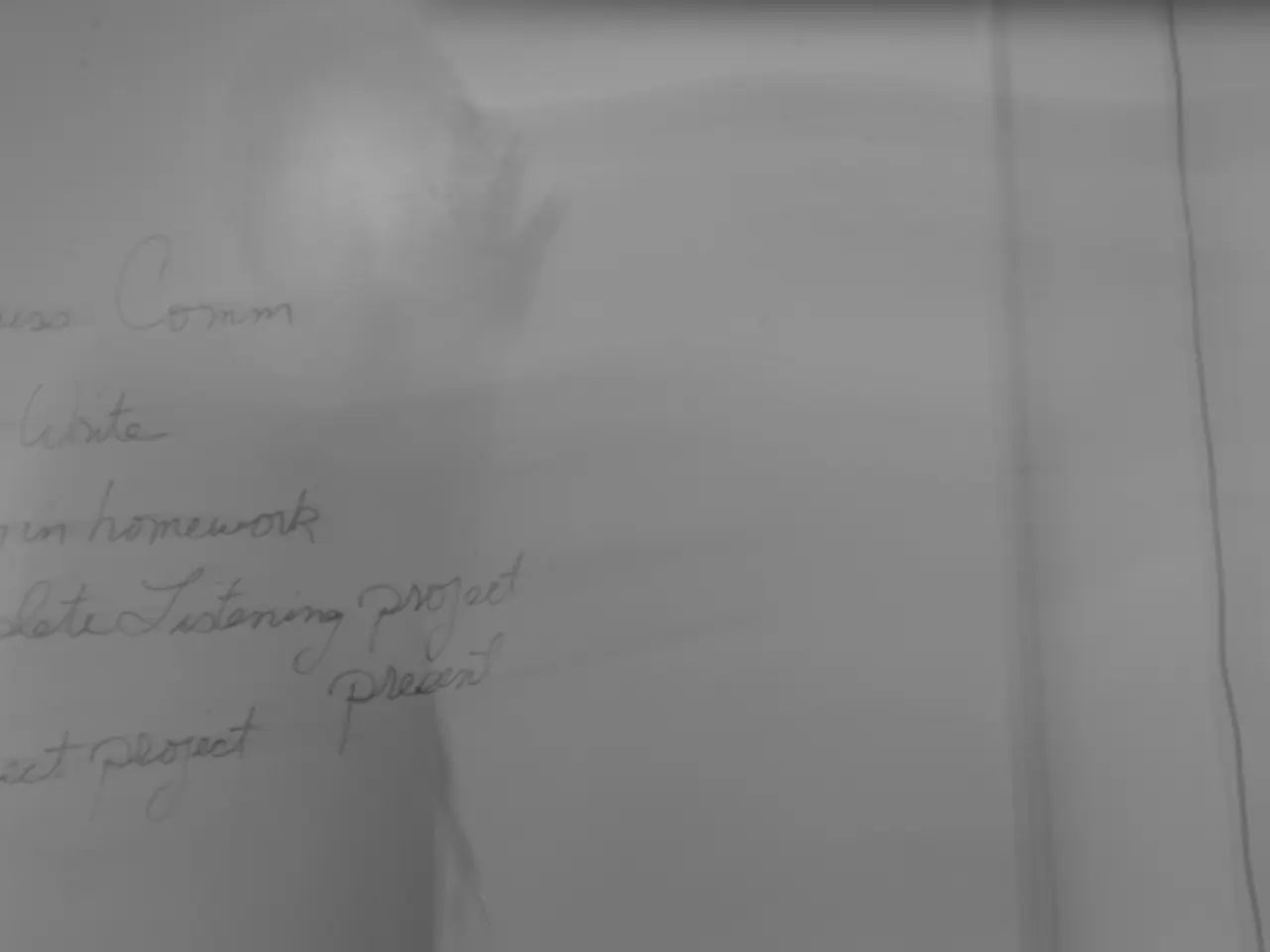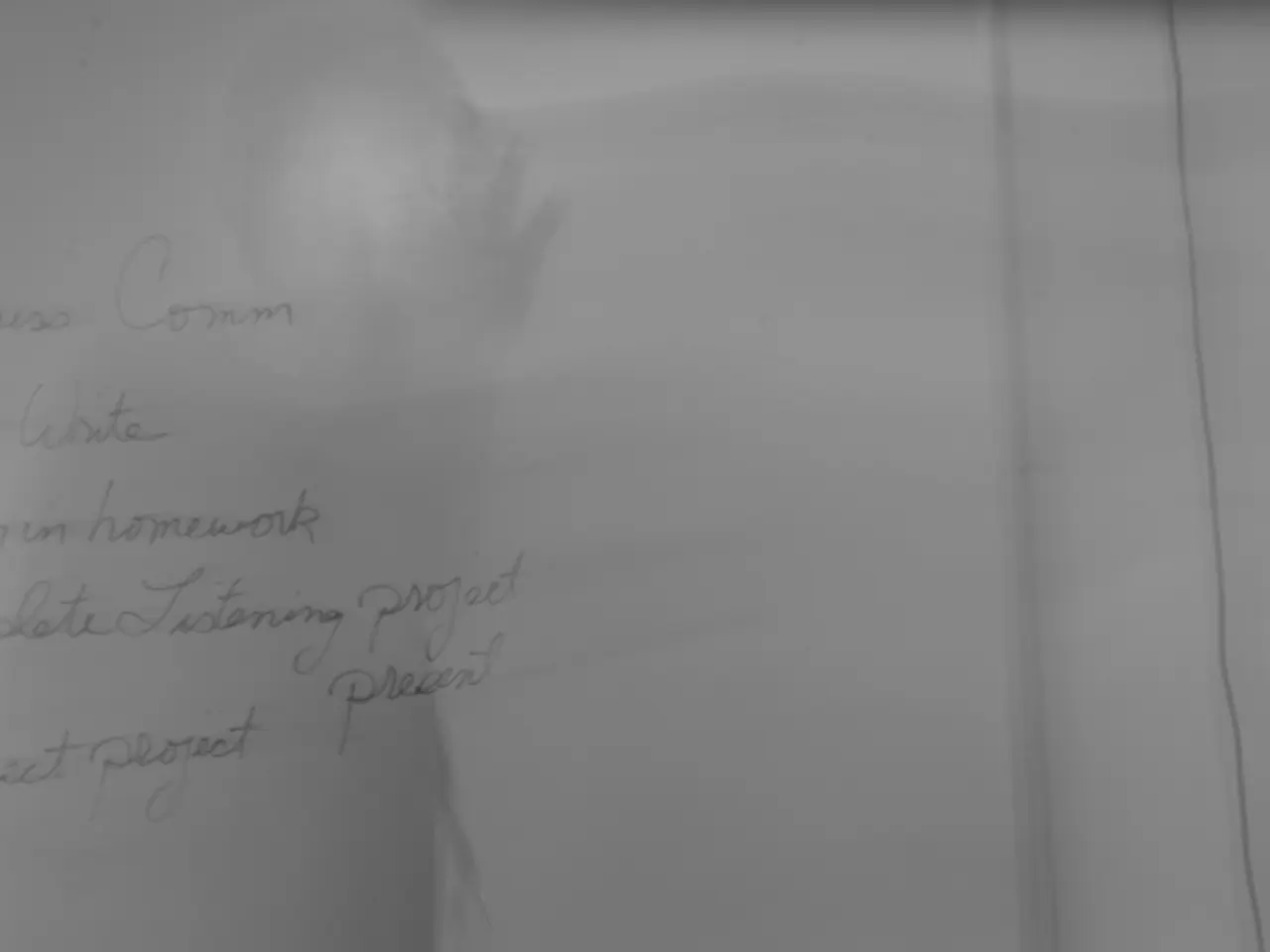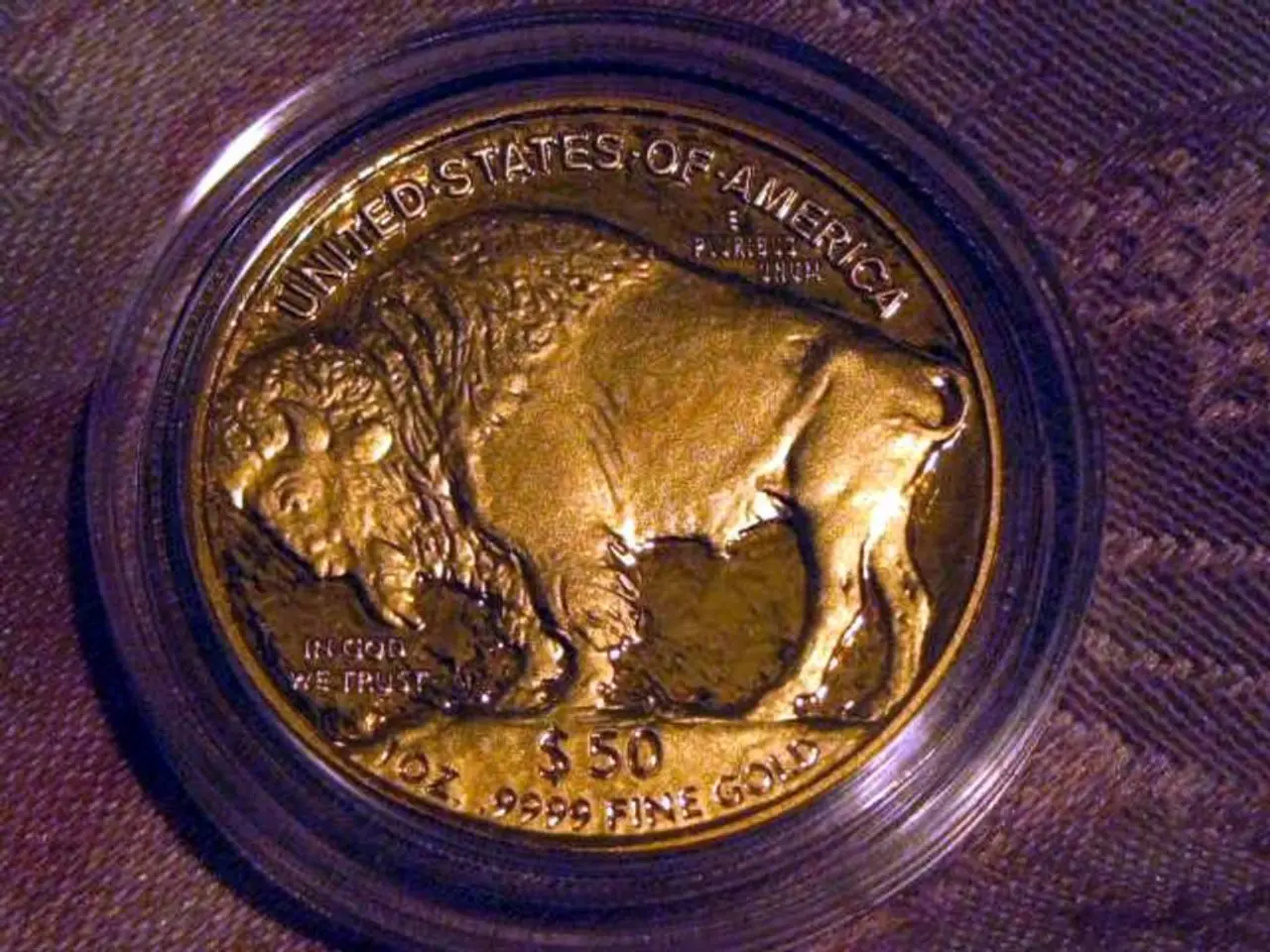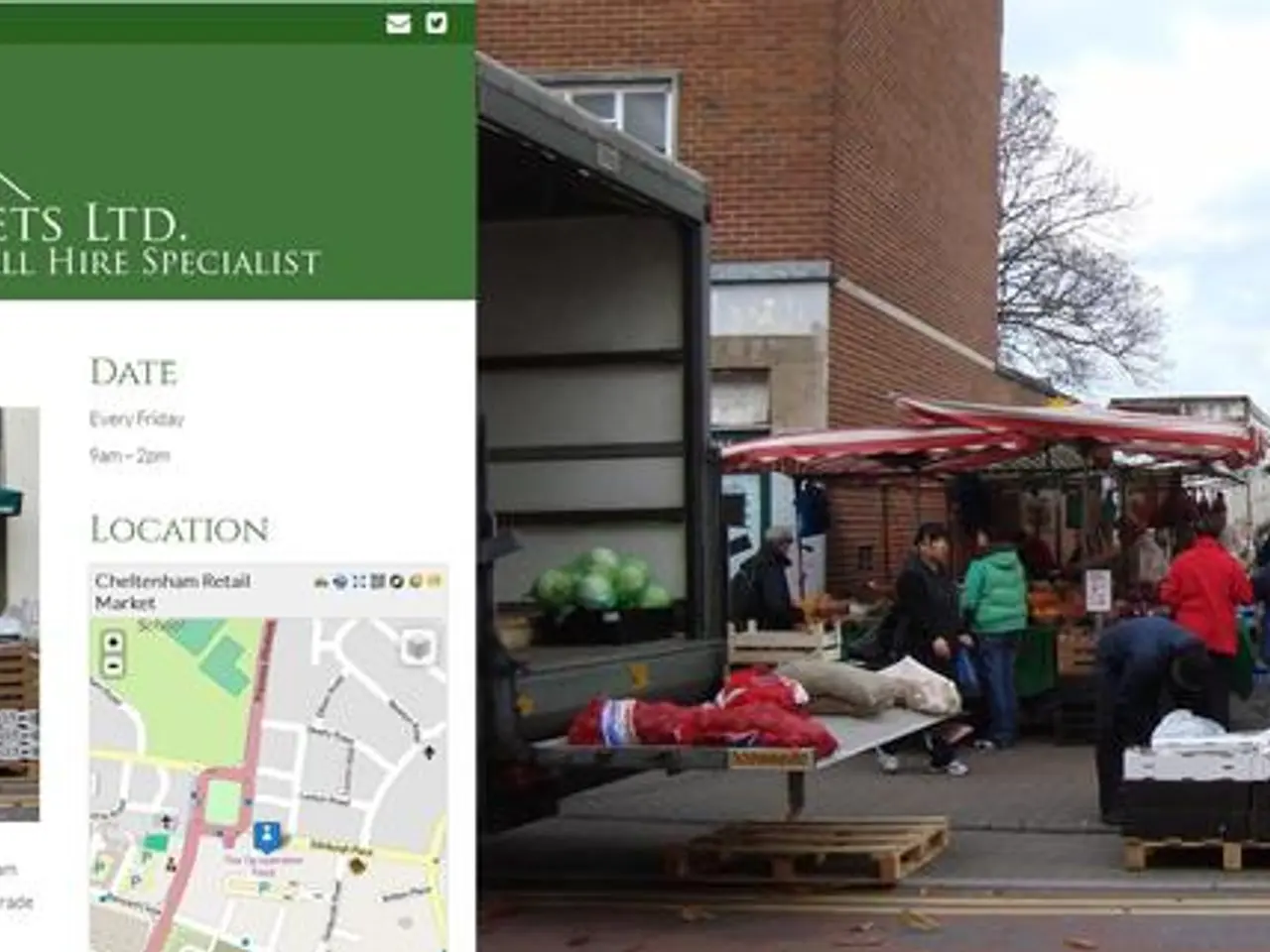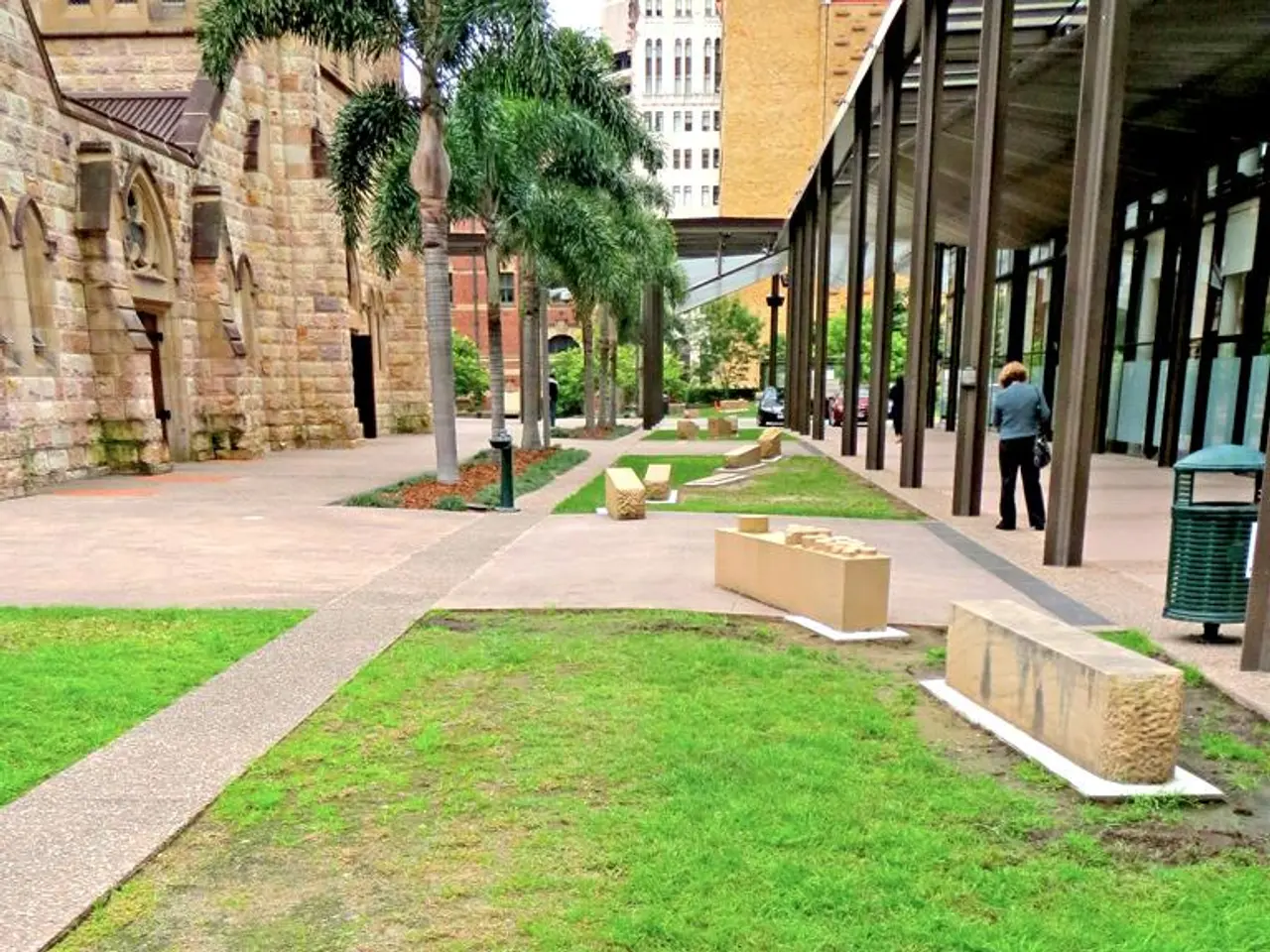Russia Teeters on Edge of Recession, Warns Kremlin's Economic Minister
Rethinkin' the Russian Roulette: The Uncertain Future of Russia's Economy
Looks like Russia's economic game is taking a turn for the worse, according to Economy Minister Maxim Reshetnikov. He declared that the country is on the brink of a recession, with the upcoming decisions being crucial.
The bleak outlook for Russia's economy comes as no surprise given the ongoing conflict with Ukraine. "Right now, we're navigating a cooling economy, but our numbers are like a rearview mirror," Reshetnikov stated at the St. Petersburg International Economic Forum.
Inflation has surged during Russia's military campaign in Ukraine, causing the central bank to push interest rates to multi-decade highs. This move has hit private investments in non-defense sectors hard. Despite government pressure, the central bank recently lowered the interest rate from 21% to 20%. However,Resizemnikov called for an additional rate cut to boost growth, trying to achieve a 3% annual growth target set by Russian President Vladimir Putin.
Faced with an economic slowdown, caused in part by plummeting oil prices, Russia has had to shelve key projects across various sectors. Export giants like metal and oil product manufacturers have slashed rail shipments even beyond initial expectations.
Earlier this year, some positive signals emerged due to US President Donald Trump's outreach to Moscow and hopes for a ceasefire. However, more recent reports indicate a sharp drop in Russia's economic growth. Analysts link this development to the central bank's policies, sanctions, inflation, falling oil prices, and supply difficulties.
It's time to face the music, Russia. The economic roadmap ahead is filled with challenges, ranging from recession risks and inflationary pressures to supply constraints and slowing real incomes. As the nation continues its fight on multiple fronts, it's crucial to understand the economic repercussions and steer the country towards a brighter future.
After all, as Reshetnikov himself said, “Everything depends on our decisions.”
Insights to Consider
- The 2025 GDP growth forecast for Russia has been revised downward to 1.4–1.5% from a previous 1.6%, and there are signs of contraction quarter-on-quarter.
- The government has tripled its 2025 budget deficit forecast to 1.7% of GDP, the second-largest nominal deficit since the pandemic era.
- Some analysts and media warn of an imminent recession, driven by structural collapse, rising deficits, and a growing imbalance between military and civilian sectors.
- Official inflation expectations remain around 7.1%, but independent estimates suggest actual inflation could reach 15–21% due to currency volatility, sanctions, and supply restrictions.
- Russia faces a growing labor shortage, infrastructure challenges, and steep declines in real incomes, with consumer activity slowing and personal bankruptcies rising.
| Indicator | 2025 Forecast/Current Status ||--------------------------|---------------------------------------|| GDP Growth | 1.4–1.5% (year-on-year, Q1–Q2) || Budget Deficit | 1.7% of GDP (tripled recent forecast) || Inflation | 7.1–8% (official), up to 21% (expert) || Oil Revenue Decline | -14.4% (YoY, Jan–May) || Real Income Change | -2% (official, likely worse) || Food Price Rise | Up to 20% (some staples much higher) || Labor Shortage | Near 3 million |
- The challenging economic outlook for Russia's future extends beyond just finance and business, encompassing other sectors like politics, general news, and war-and-conflicts, as the nation grapples with the impact of ongoing conflicts, sanctions, and geopolitical tensions on its economy.
- The Russian economy's uncertain future is closely intertwined with political decisions, as economic indicators such as GDP growth, budget deficit, and inflation all hinge heavily on the choices made by its leaders.
- As Russia faces an economic slowdown and possible recession, domestic industries like finance, business, and even war-and-conflicts may experience increased strain from factors like inflation, labor shortage, and infrastructure challenges, permanently altering the country's business landscape.
